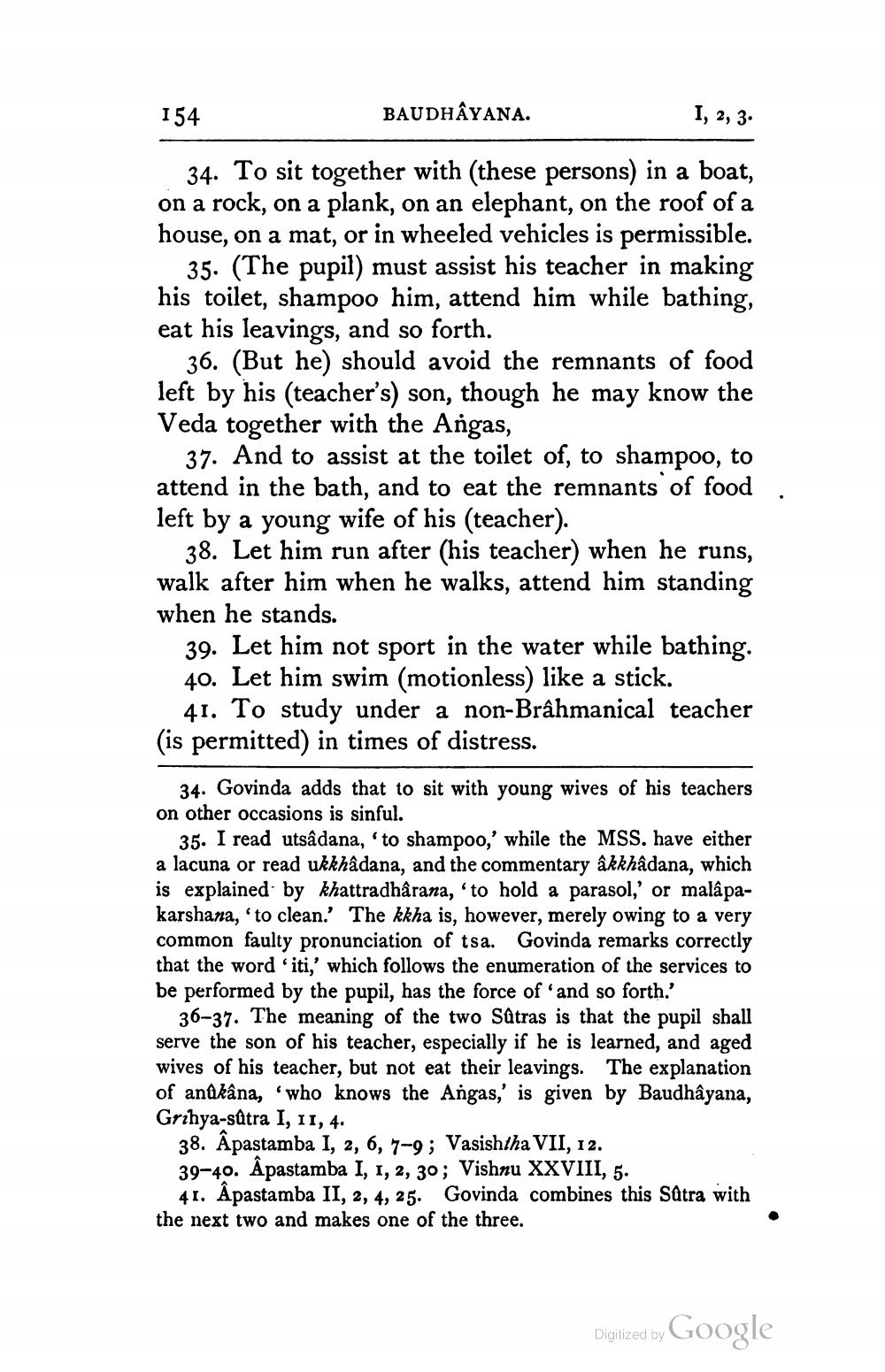________________
154
BAUDHAYANA.
1, 2, 3.
34. To sit together with (these persons) in a boat, on a rock, on a plank, on an elephant, on the roof of a house, on a mat, or in wheeled vehicles is permissible.
35. (The pupil) must assist his teacher in making his toilet, shampoo him, attend him while bathing, eat his leavings, and so forth.
36. (But he) should avoid the remnants of food left by his (teacher's) son, though he may know the Veda together with the Angas,
37. And to assist at the toilet of, to shampoo, to attend in the bath, and to eat the remnants of food left by a young wife of his (teacher).
38. Let him run after (his teacher) when he runs, walk after him when he walks, attend him standing when he stands.
39. Let him not sport in the water while bathing. 40. Let him swim (motionless) like a stick.
41. To study under a non-Brâhmanical teacher (is permitted) in times of distress.
34. Govinda adds that to sit with young wives of his teachers on other occasions is sinful.
35. I read utsâdana, 'to shampoo,' while the MSS. have either a lacuna or read ukkhâdana, and the commentary âkkhâdana, which is explained by khattradhârana, 'to hold a parasol,' or malâpakarshana, to clean.' The kkha is, however, merely owing to a very common faulty pronunciation of tsa. Govinda remarks correctly that the word 'iti,' which follows the enumeration of the services to be performed by the pupil, has the force of and so forth.
36-37. The meaning of the two Satras is that the pupil shall serve the son of his teacher, especially if he is learned, and aged wives of his teacher, but not eat their leavings. The explanation of angkâna, who knows the Angas,' is given by Baudhayana, Grihya-sūtra I, 11, 4.
tamba I, 2, 6, 7-9; Vasishtha VII, 12.
astamba I, 1, 2, 30; Vishnu XXVIII, 5. 41. Apastamba II, 2, 4, 25. Govinda combines this Sätra with the next two and makes one of the three.
39
Digitized by Google




